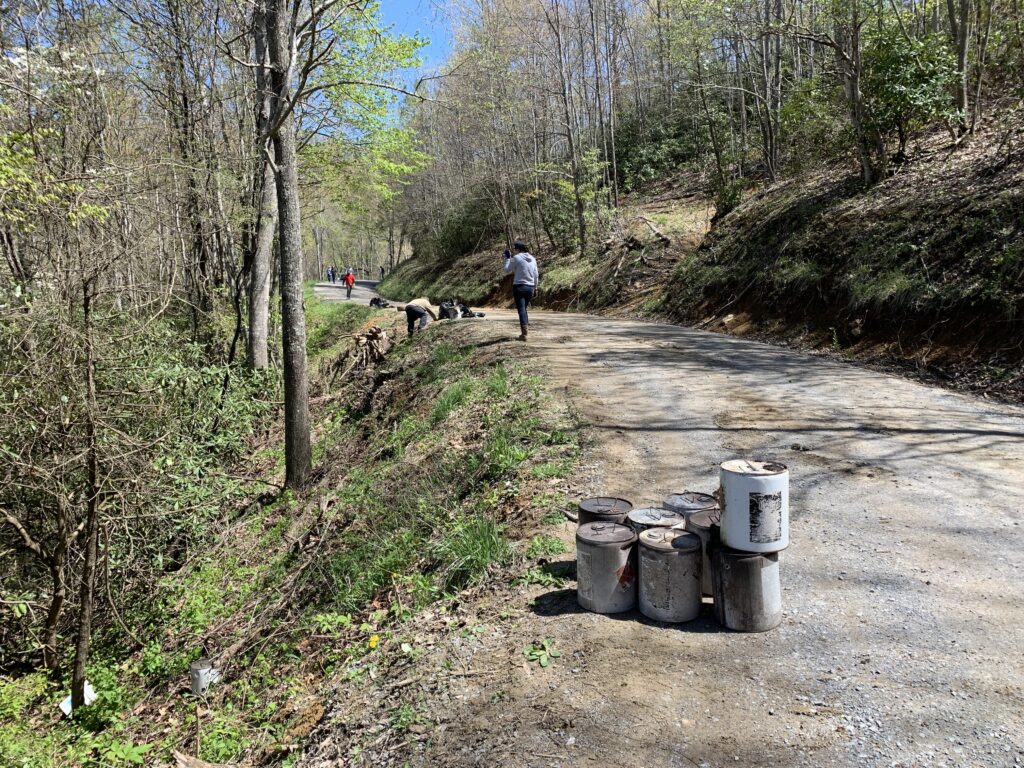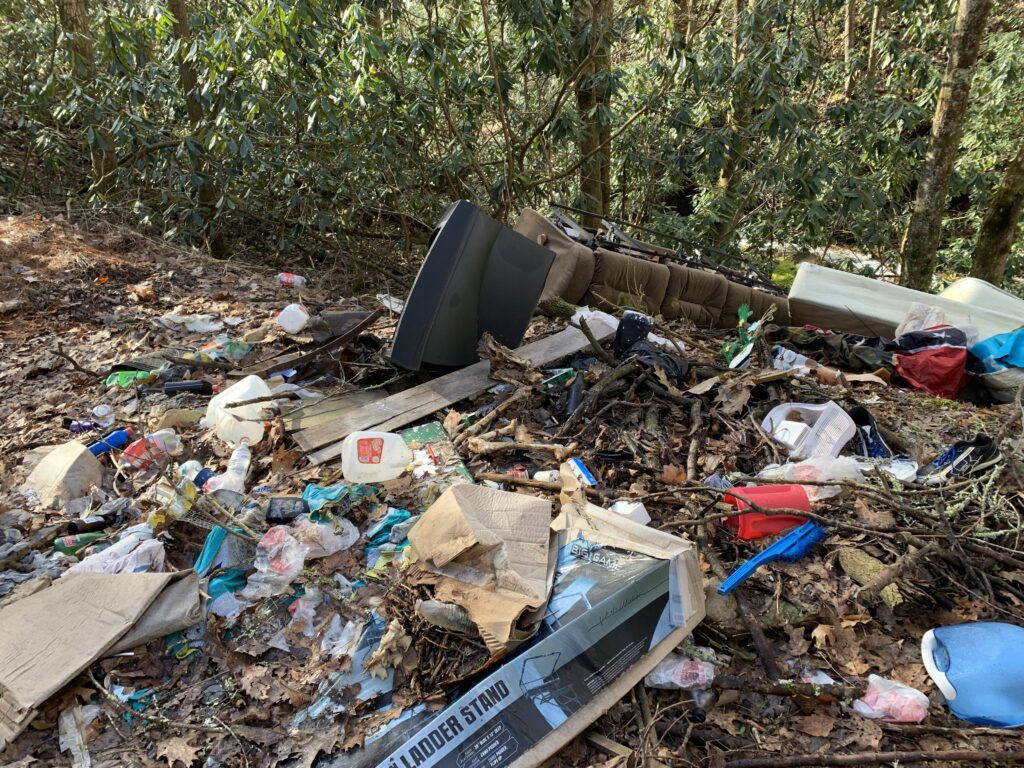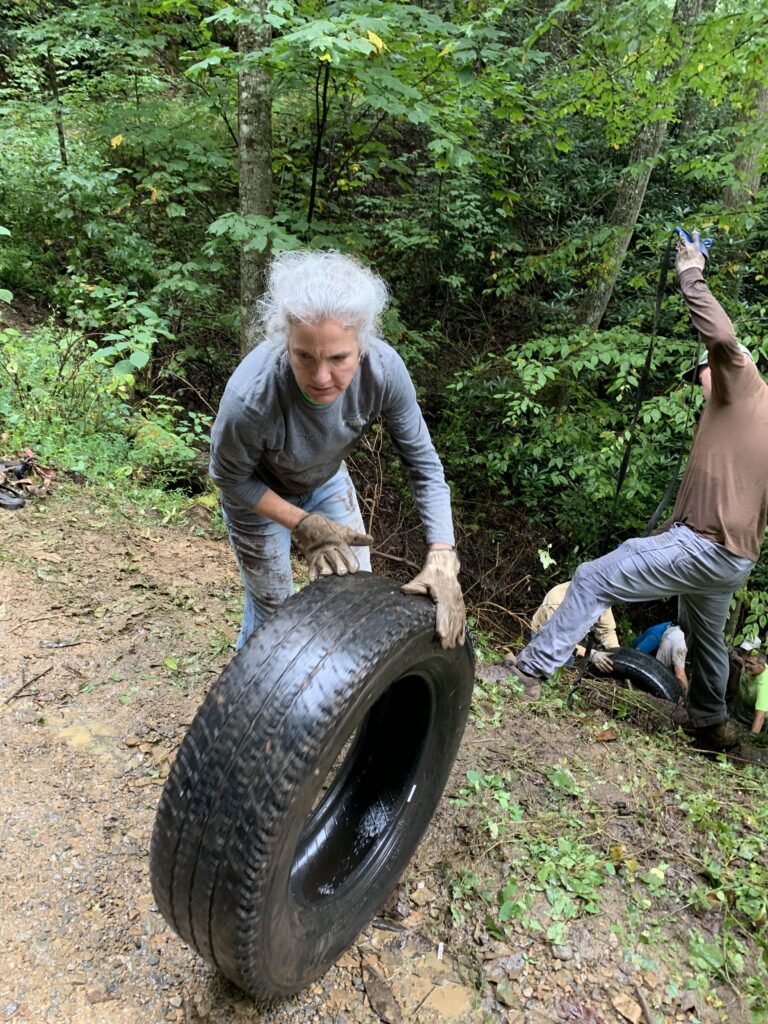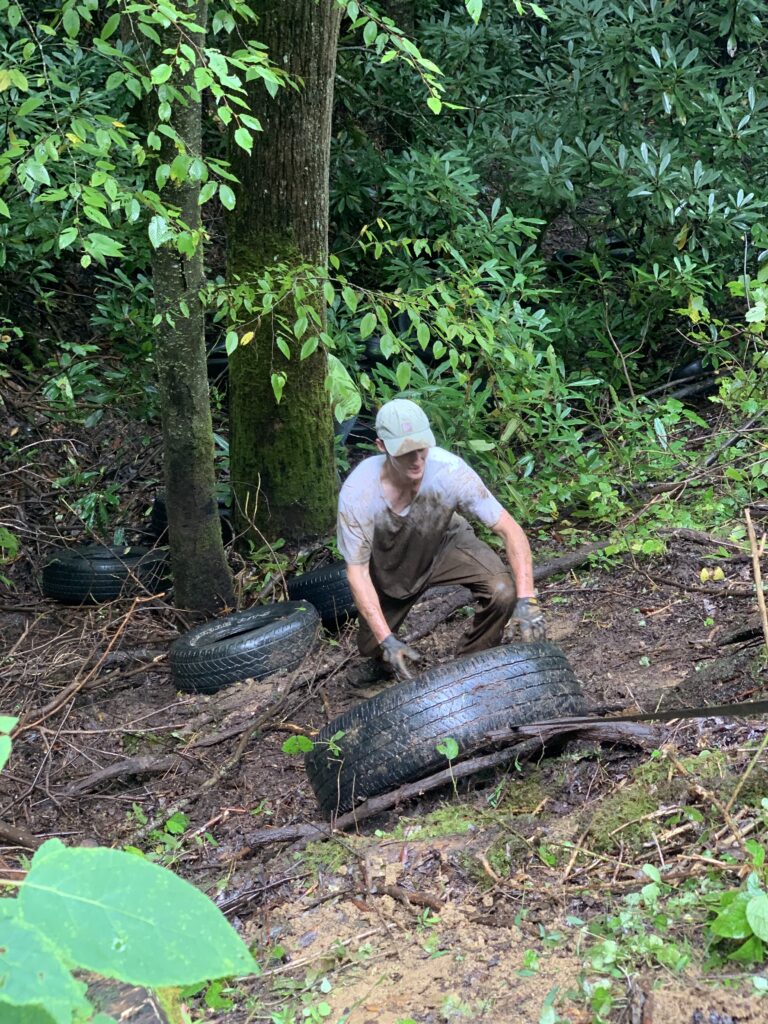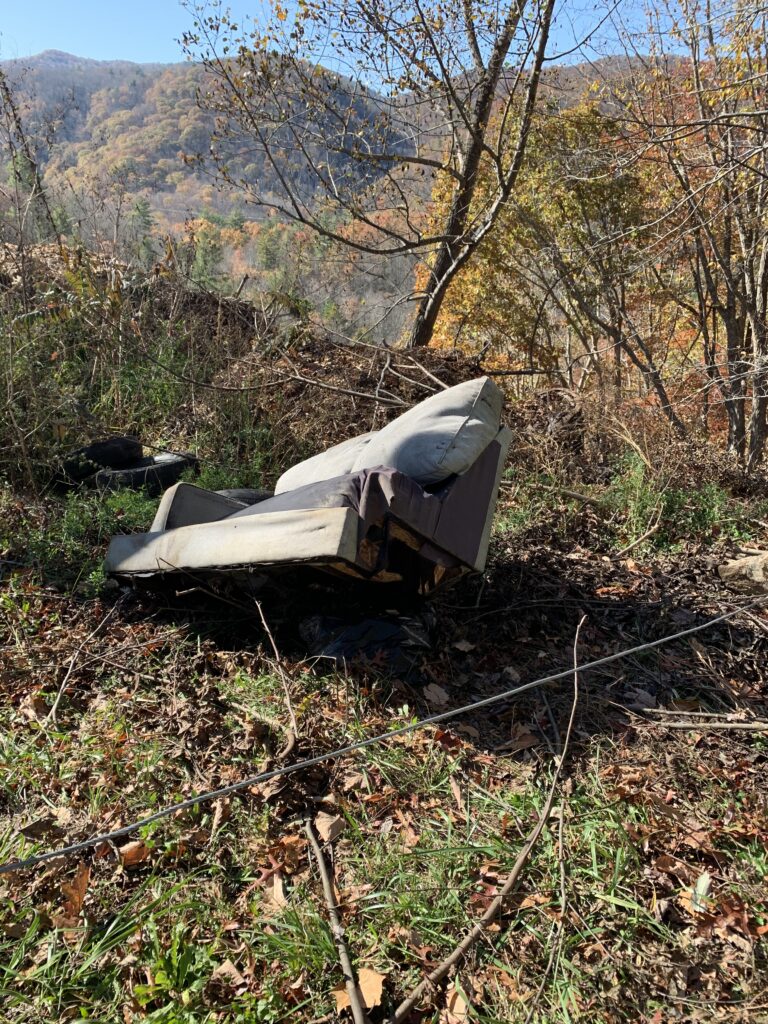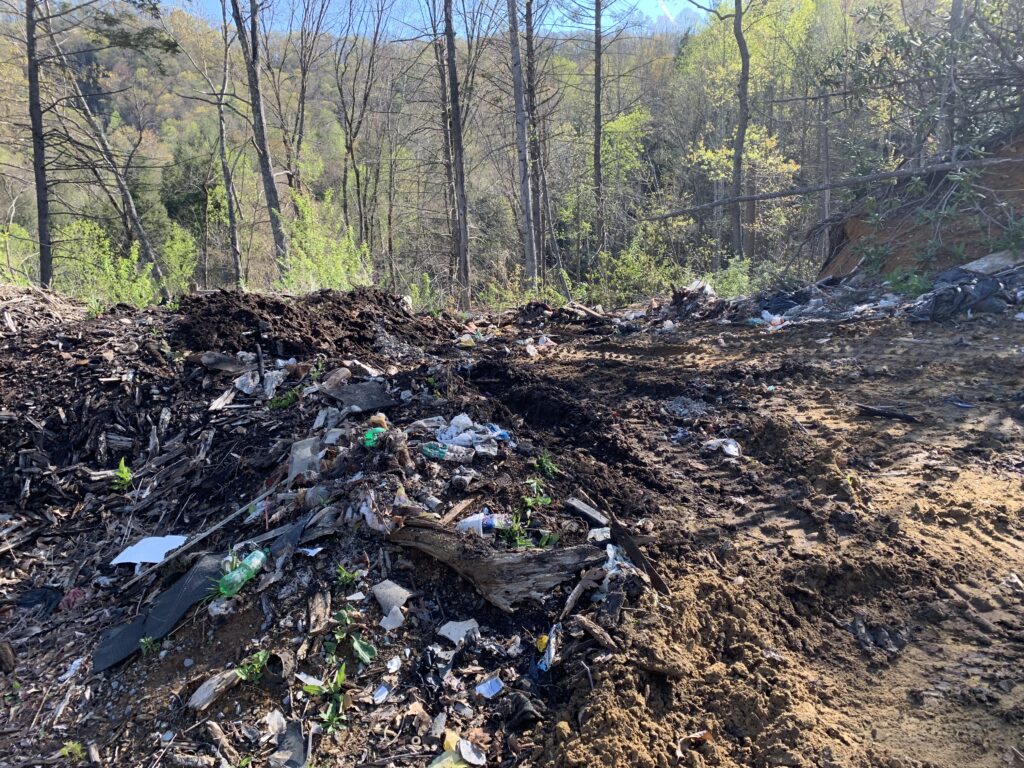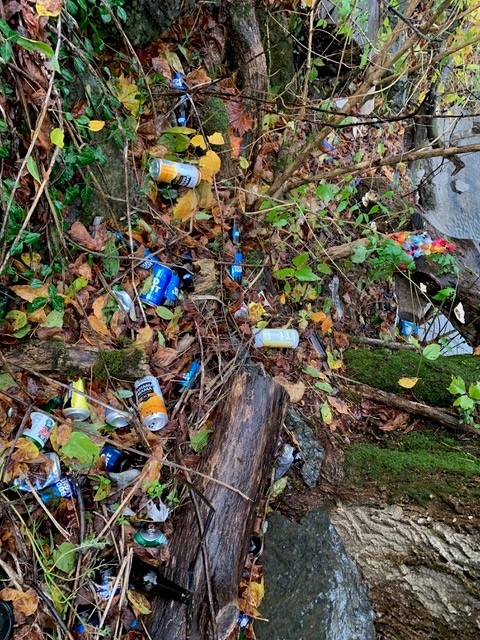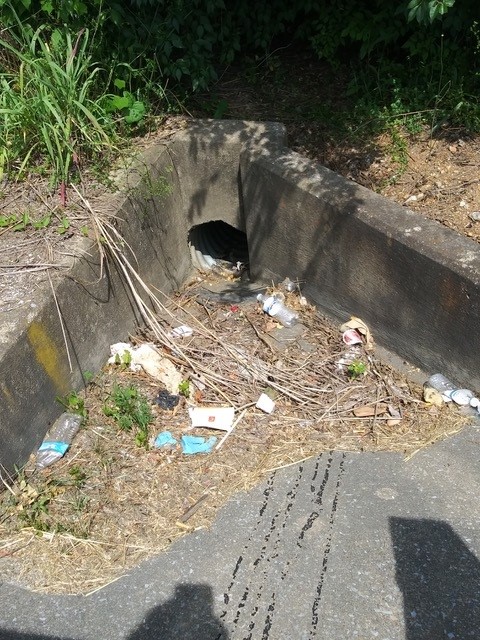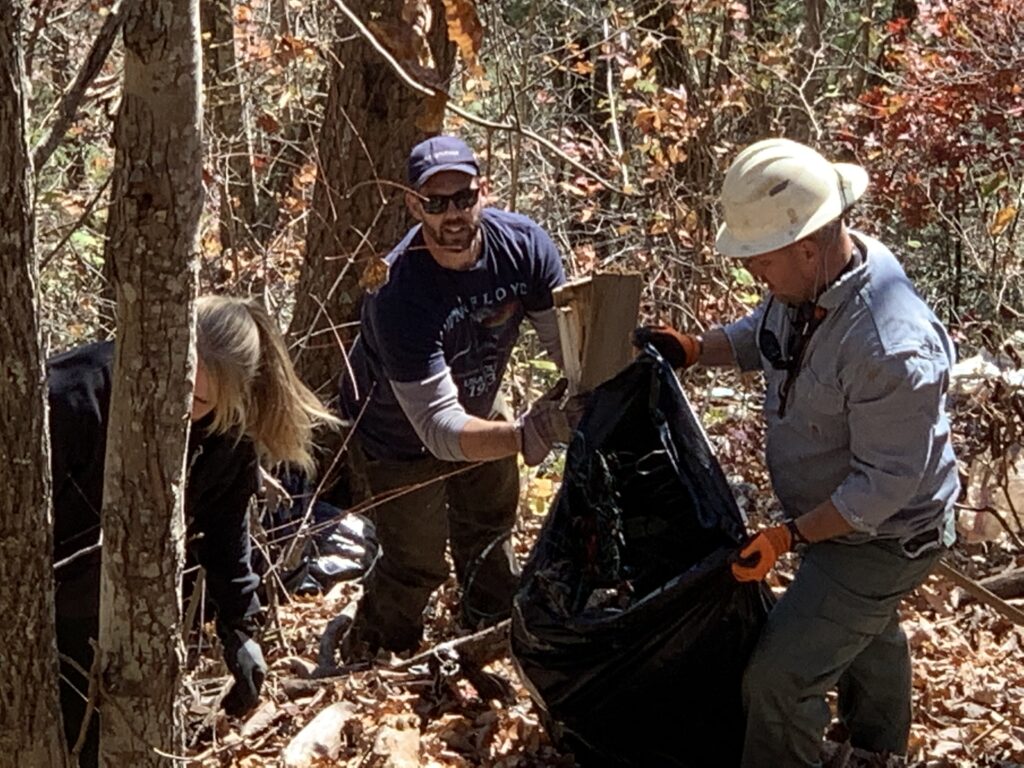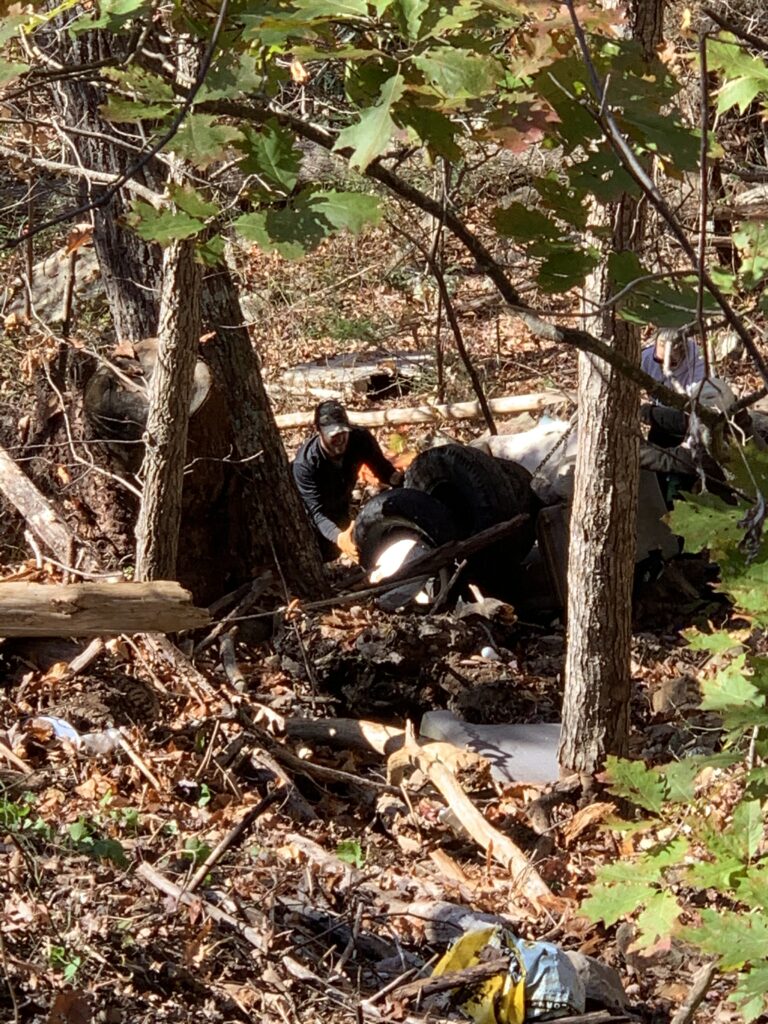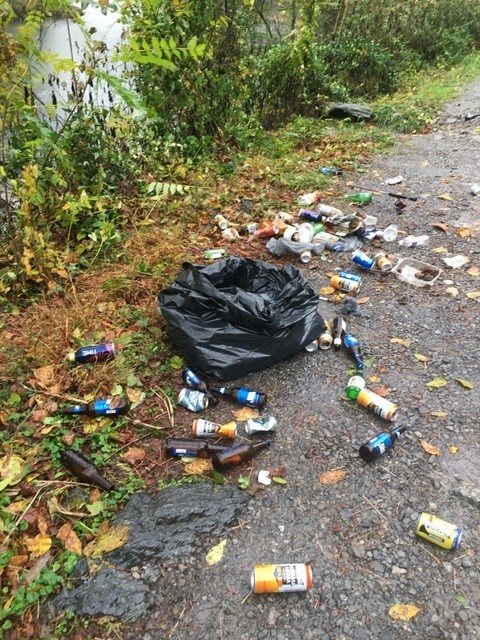
What is Litter?
lit-ter (noun): Waste products that have been disposed of incorrectly, either deliberately or negligently without consent, at an unsuitable location often a public location. It’s not just trash, but also toxic substances improperly disposed of, chemical runoff and illegal dumping. Litter includes garbage, refuse, rubbish and all other waste material, including tobacco products and any other item primarily designed to hold or filter a tobacco product while the tobacco is being smoked.
Deliberate Littering:
Deliberate littering occurs when an individual makes a conscious decision to throw trash on the ground rather than place it in the proper receptacle.
This behavior is common in public areas where trash receptacles may not be available, or in transition areas like bus stops/parking lots where people won’t be allowed to take trash from one location to another. Deliberate littering is additionally common from vehicles, as motorists often won’t have adequate receptacles in their vehicles and will not wait to stop and find one.
Negligent Littering:
Negligent littering occurs when an individual drops trash to the ground without being aware of it.
This is most common in the form of an uncovered load on a vehicle that allows items to fall off/out of a vehicle. Negligent littering is also common when trash receptacles are not emptied regularly and become overstuffed, allowing trash to fall out onto the ground.
Illegal Dumping:
Illegal dumping occurs when a group, company or individual elect to dump large quantities of garbage/waste in a location that is not designated as a waste management facility or is privately owned by those performing the dumping.
This behavior is common in rural areas where curbside garbage pickup may not be available. Additionally, it is common for illegal dumping to occur in an attempt to avoid disposal fees. Tires are particularly common in illegal dumps, as they usually require a disposal fee for each tire.
New Tennessee littering laws effective July 1, 2022 TCA 39-14-5
Many concerned citizens of Carter County have asked us why the littering and dumping fines in our state are so low. Our answer has been, we do not know why, please contact your Tennessee Representative and let them know your thoughts. The fines just did not seem to provide a deterrent or adequately reflect the damage being done to our community. In fact at $50, Tennessee had one of the lowest fines for littering in the United States. It looks like your calls have been answered.
On July 1, 2022, changes to the littering and dumping laws went into effect. One of the changes in the law was an increase in the minimum fines for littering. That cigarette butt, fast food trash, beverage container thrown onto the ground will now cost the offender $500. Hopefully, these stricter fines will make the offenders think twice. That was not the only good news in the law. The reward for providing information to law enforcement that leads to the apprehension and conviction for littering/dumping will remain at $50/$250. The law also allows the judge to sentence the offender to community service cleaning up litter and/or working at a recycle center (something Carter County desperately needs). Hopefully, the good citizens of our county will now start demanding accountability for the damage done to our beautiful environment.
Below you will see some of the important clauses in the law:
- Whenever litter is dropped or thrown from a motor vehicle, the driver can be held responsible.
- Whenever trash is discovered containing a name and/or address that person can be held responsible.
- Mitigated Criminal Littering is littering in an amount of 5 lbs. or less and is now a $500 fine (was $50). A person convicted of Mitigated Criminal Littering can also receive community service consisting of 40 hours of trash removal and/or 8 hours work at a recycling center. Any person who reports information to a law enforcement officer that leads to the apprehension and conviction of a person for mitigated criminal littering shall receive a $50 reward.
- Criminal Littering is littering in an amount between 5 lbs. and 10 lbs. and is a $500 fine. A person convicted of Criminal Littering can also receive community service consisting of 80 hours of trash removal and/or 8 hours work at a recycling center.
- Aggravated Criminal Littering is littering in the amount greater than 10 lbs. or two or more tires, This is a Class E felony with fines of $2500-$4000. (Note: This offense now specifically includes tires). A person convicted of Aggravated Criminal Littering can also receive a sentence of 160 hours of trash removal and/or 8 hours work at a recycling center. Any person who reports information to a law enforcement officer that leads to the apprehension and conviction of a person for aggravated criminal littering shall receive a $250 reward.
- Not covering your load with a tarp is a fine of $500. (Note: This offense includes pickup trucks with a differentiation between personal and business use.)
Tennessee litter and dumping laws effective July 1, 2022
Title 39 – Criminal Offences
Chapter 14 – Offences Against Property
Part 5 – Litter Control
 Loading…
Loading…
Cover your load, it’s the law!

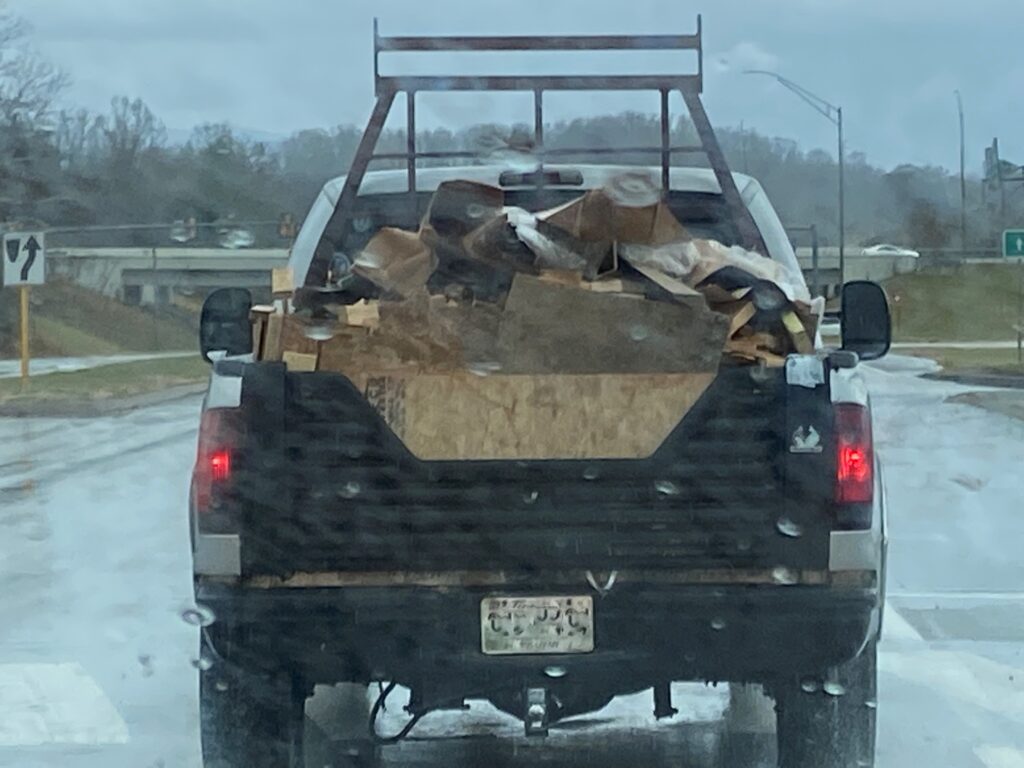
Every year thousands of motorists are injured or killed on our highways. Even under the best of conditions, driving can be hazardous. Add bad weather or poor road maintenance to the equation and it can be downright dangerous just to go out. One factor that increases the risk associated with driving is road debris. Anyone who has had to swerve to avoid an object in the road understands the danger.
I was driving along Highway 321 at the I-26 interchange this week, when I noticed two pickup trucks loaded with what appeared to be construction debris. The lead pickup was pulling a trailer loaded with scrap wood. Plywood was used to keep the debris from falling off the sides of the trailer and two straps were the only thing keeping the entire load from sliding off the back. The second pickup had the bed piled high with debris, with no apparent method of securing it.
Just as I was commenting to the passengers in my vehicle about how unsafe the loads appeared to be, debris came flying off one of them and landed right in front of me. Fortunately, I had enough room in front of my vehicle and was able to change lanes to avoid the debris. I was not sure that the vehicles behind me were able to avoid the hazard.
Safety is not the only issue with vehicles like these. Highway 321, between Johnson City and Elizabethton, is full of trash that flies off vehicles. Tennessee spends over 18 million dollars every year to remove litter and debris from our roads and waterways. Don’t you think there are more important things we could spend this money on? Don’t you think that our beautiful mountains and wildlife deserve a break from our apathy? Please be smart and start thinking about the impact you have on your surroundings every day.
Tennessee State Law requires: “Any motor vehicle that transports litter or any material likely to fall or be blown off onto the highways, shall be required to have such material either in an enclosed space or fully covered by a tarpaulin.” Were you aware that this includes Pickup Trucks? You should also know that violating this law is punishable by a $500 fine and community service. If you see a situation like I describe above, please report them to The Tennessee Department of Transportation at:
Tennessee Department of Transportation Litter Facts
 Loading…
Loading…
Keep America Beautiful 2020 National Litter Study

The Keep America Beautiful 2020 National Litter Study can be downloaded by clicking on the button:
Tires dumped in the Watauga River, Buffalo Creek and Buffalo Mountain

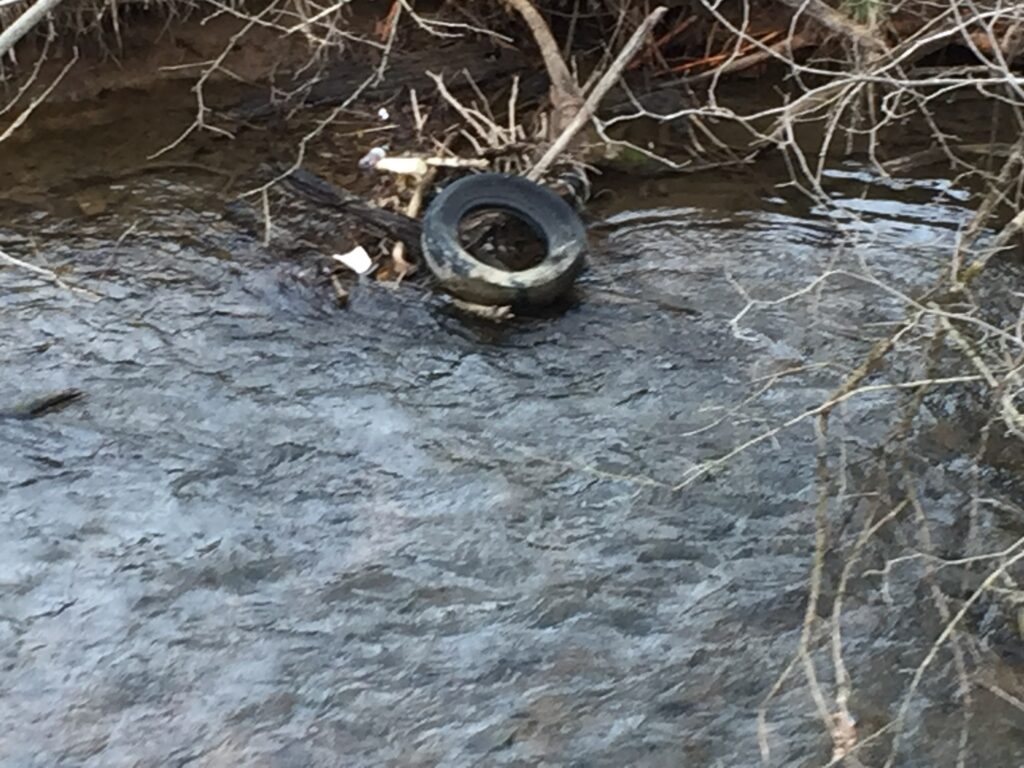
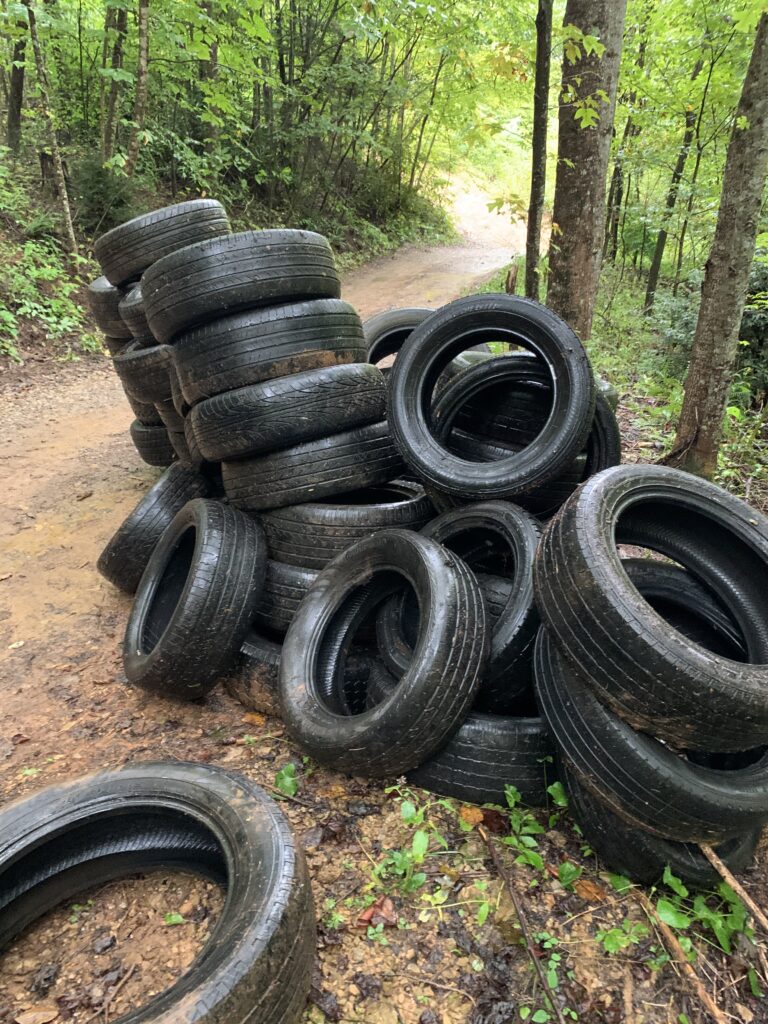
Tires are more than just unsightly. They provide a home for mosquito larva to hatch, spreading diseases like West Nile. They damage our parks and waterways, poisoning our fish and wildlife and destroying our drinking water. Click on the “Eco Green” logo below to get more information on the hazards of dumped tires.
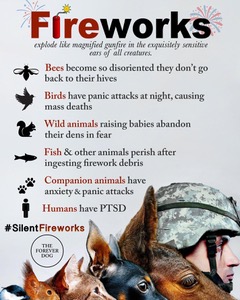
Fireworks are not only a source of litter/pollution they are harmful in so many ways. Next time you want to celebrate with fireworks consider all the harm they do to our community. Please find a responsible alternative to fireworks for your celebration.
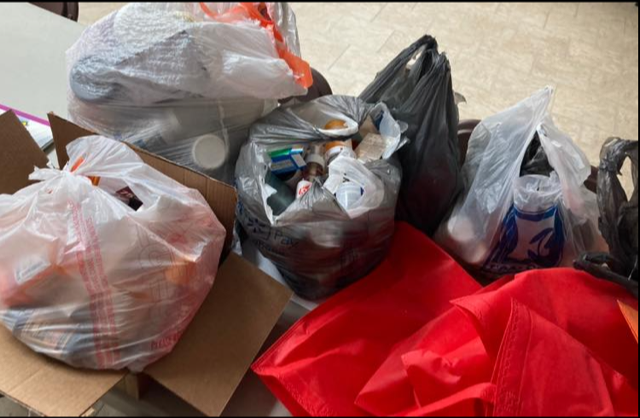
Did you know over the counter and prescription drugs are classified as Hazardous Waste! Please Dispose of them properly.
Do not throw them in the trash! or flush them down the toilet!
Picture provided by Carter County Drug Program
Material Decomposition Rates in a Landfill
| Item | Time | Item | Time | |
|---|---|---|---|---|
| Paper Towels | 2-4 Weeks | Leather | 50 Years | |
| Orange/Banana Peel | 2-5 Weeks | Plastic Foam | 50 Years | |
| Apple Core | 2 Months | Rubber Shoe Sole | 50-80 Years | |
| Cotton Shirt | 2-5 Months | Aluminum Can | 80-200 Years | |
| Plywood | 1-3 Years | Disposable Diapers | 450 Years | |
| Cigarette Filter | 1-10 Years | Plastic Bottle | 450-1000 Years | |
| Plastic Bag | 10-20 Years | Glass Bottle | 1 Million Years | |
| Nylon | 30-40 Years |
Litter, trash and dumping will destroy our planet! Here is how bad the problem can get!
Which river is one of the most plastic polluted in the world:
- River Thames – England
- Rhine River – Europe
- Yangtze River – China
- Tara River – Eastern Europe
Bet you did not guess the Tennessee River!

Littering is illegal and can result in serious fines and jail time!!!


